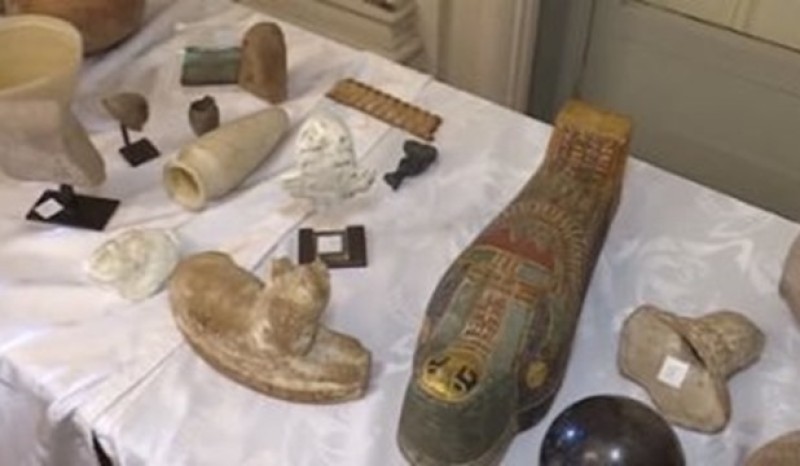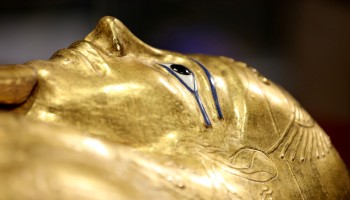This week, in another high-profile arrest, authorities have detained 74-year-old Hassan Rateb, a renowned businessman and former owner of Al-Mihtar, an Egyptian TV station, the Egyptian daily Ahram reported.
The authorities also found more than 200 additional artifacts stored in a Cairo warehouse.
Along with Rateb and Hassanein, 17 other alleged members of the ring have been arrested.
The artifacts seized in the Cairo warehouse and in France date from the Pharaonic age to the Greek era of Egyptian history.
The illegal antiquities trade is a multibillion-dollar global industry according to a 2018 report by Standard Charter Bank, and its beneficiaries are not just wealthy art aficionados, but often criminal and militant groups on the supply side.
“You cannot look at it separately from combating trafficking in drugs and weapons. We know that the same groups are engaged, because it generates big money,” said Catherine de Bolle, Executive Director of Europol, after a major crackdown on the illegal antiquities trade last May.
The looting of cultural property from active war zones is considered a war crime under the 1954 Hague Convention.






